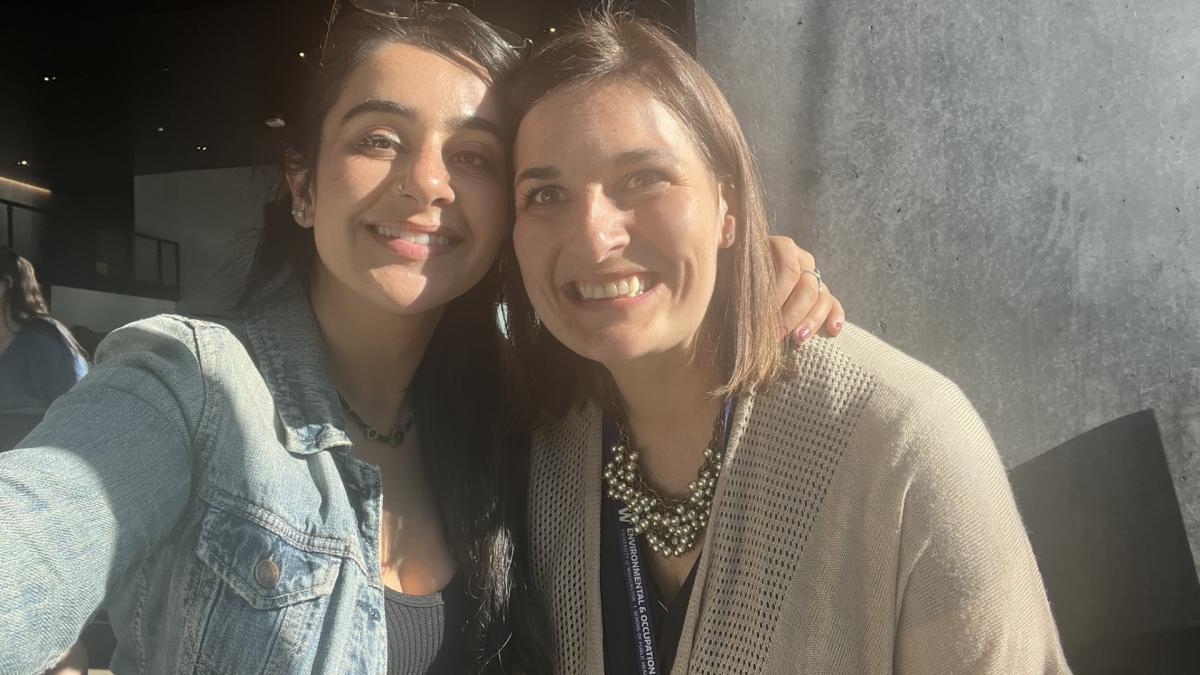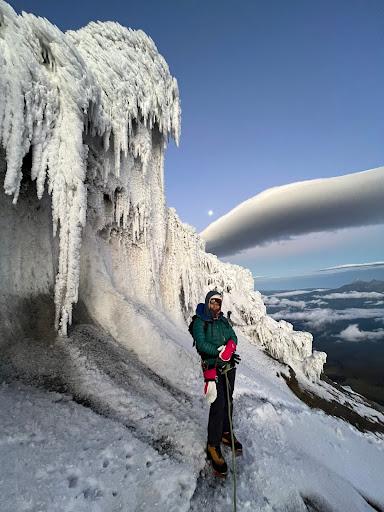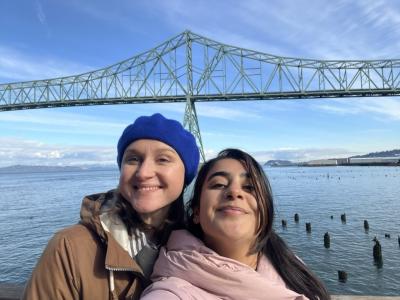
Amber Khan, PhD, is a postdoctoral scholar who is committed to disaster research at the intersection of the climate and housing crises. Broadly, Khan is interested in community-led and policy solutions to displacement and gentrification linked with low-income housing and disasters.
Currently, she is working with professor Nicole Errett, PhD, MSPH, who was Khan’s adviser for her PhD, to explore how people work together to address disasters when government contributions subside. She's involved in two main research projects: one with the UW Climate Impacts Group, exploring mutual aid during disasters in Seattle, WA and Ashford, NC, and another on community land trusts, an affordable housing model where non-profits secure land to maintain permanent affordability for low and middle-income residents.
“I’m really interested in approaching the intersection of public health and climate justice from an intersectional perspective that addresses how being displaced from your home and community drastically impacts your well-being, and how research can help people stay in place or move with dignity during this era of climate change,” Khan says.
With CHanGE, Khan is an integral part of the Reach Center team, which aims to develop interventions that protect health and safety during extreme weather events. She is a part of the Implementation and Evaluation core, a group at Reach developing a fellowship program that will compile an interdisciplinary team to implement and evaluate interventions.
Khan graduated earlier in the academic year 2024-25, with her PhD from the UW Department of Environmental & Occupational Health Sciences (DEOHS). Recently, she received the prestigious 2025 School of Public Health (SPH) Excellence Award for Outstanding Doctoral Student and was featured on the DEOHS website. This recognition reflects Khan's dedication, service, and contributions to keeping people healthy. In this Q&A, Khan reflects on her journey in climate change and health and shares hope for the future.

What drew you to your area of research: climate and housing, disaster preparedness, and displacement and gentrification?
Amber Khan: I came into public health being set on studying infectious disease epidemiology, but that changed very quickly when I started engaging in climate change organizing in the Bay Area, where I grew up. In the East Bay, there’s a big Chevron refinery that constantly pollutes nearby communities- that’s how I was first introduced to local environmental justice organizing. I had always been aware of environmental disparities in the Bay and while visiting family in Pakistan, but getting into organizing while studying public health really energized me to center my work around disaster justice.
When I started my PhD at UW, I naturally gravitated toward housing because I had realized how intertwined housing and climate justice are- if you don’t have a home, there are so many barriers to good health and stability. I saw a gap at the intersection of disasters and social/public housing and that led me to a really interesting interdisciplinary dissertation.
What has been a particularly rewarding or memorable experience throughout your academic/professional journey?
Amber Khan: I’ve gotten to explore very different but interconnected topics in disaster resilience – land justice, rematriation [the sacred process of restoring Indigenous culture and spiritual relationships to the Earth], youth empowerment in climate justice, Indigenous sovereignty, social housing, collaboration in disaster research, healthcare facility climate mitigation, food sovereignty, the list goes on. I love that my academic path has allowed me to think critically about so many hard problems our world is facing right now and constantly getting to meet passionate people who teach me something new. Working with Dr. Errett has been such a gift in this whole journey, I feel incredibly lucky that our paths lined up- she’s the type of mentor who creates opportunities for others and gives space to think outside the box.
Describe your role with the Reach Center on the Implementation and Evaluation Core (IEC). What excites you about this?

Amber Khan: Right now, I’m leading a literature review on implementation science and climate/health adaptation to inform the curriculum we’re developing for an IEC fellowship program, which will bring together teams of scientists who develop an implementation science project on a climate and health intervention. As someone who has benefited (and continues to benefit) from amazing interdisciplinary mentorship, I see so much value in two things the IEC fellowship is doing: creating mentorship opportunities for emerging scientists/practitioners and bringing together researchers from different fields. There are so many dimensions to climate change health impacts and having different people in the room working on solutions is a real need. Once the IEC fellowship takes off, I’ll be running an evaluation of the entire program to improve on future iterations of it.
The area of climate change and health can sometimes be overwhelming. What motivates you to stay the course?
Amber Khan: We’re living in a really heavy time of damage to the land, political upheaval, genocide and displacement, and income disparity. I feel overwhelmed a lot of the time, but spending time outside and talking to people about climate adaptation solutions gives me hope and motivates me to keep on doing this work. I hear stories every week of how communities are defending land, creating community-led strategies to protect each other, and retaining traditional and local knowledge. If I can play my small part in elevating these stories and advocating for others, that gives me hope.